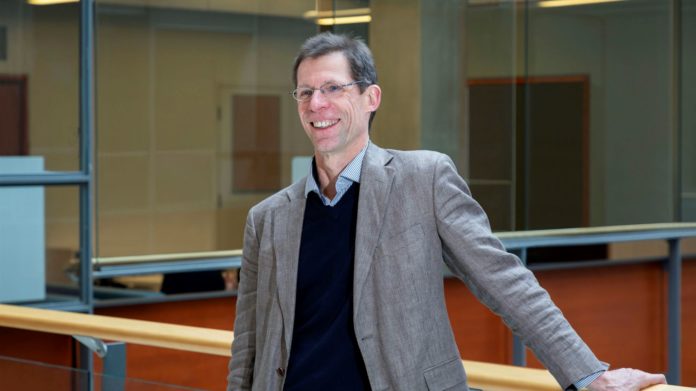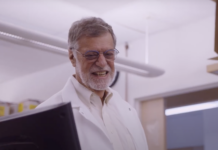Nikolaus Troje is a Professor of Biology at York University and the Director of the BioMotion Lab. His research focuses on questions concerning the nature of perceptual representations. We asked him everything from his admiration for the physicist Ernst Mach to how the outdoors inspire him in hopes of giving you a better understanding of what goes on outside the lab for one of the best minds in Canadian research.
What do you like most about being a researcher?
I am a very curious person. I enjoy that I have the time and means to follow the questions I am interested in. Doing so means I have to learn about new concepts, techniques, and ways of thinking. My education will never be complete; I will always learn more. Most professions come with some aspect of lifelong learning, but being a researcher means that learning itself is the goal and not just a vehicle to reach some other goal.
What advice would you give young researchers?
The most important thing to thrive in research is to find your personal motivation. It is important to get recognition from others too, but a strong inner motivation is the more critical ingredient in developing the endurance required to get through those long periods of reading, trying out, and thinking that may seem to be unproductive to others, but are often necessary for a project to mature and eventually succeed. Work at your own pace, don’t let others dictate it. Work towards quality, not quantity.
What inspired you to become a researcher?
After finishing high school, I had no aspirations to become an academic. But I was reading a lot about the philosophy of perception, evolutionary epistemology, and theoretical physics. What drove me was the question of why we are so sure that the world around us exists independently of our perception of it, even though there is no way to test that hypothesis. What really got me hooked into research in the end was the experience I had during graduate studies when I could ask these questions experimentally while working on the visual system of bees and flies.
What do you like to do for fun?
I do research for fun. I love to get outdoors too, be it hiking, biking, or paddling. However, part of the fun about the latter is that such activities put me in a mindset that allows me to think even more and sometimes deeper and more productively about my research questions.
What’s your favourite cuisine?
I love good food no matter where it comes from. But I find that particularly good cuisine tends to be concentrated around the Mediterranean.
If you could do any profession other than your own, what would it be?
Architecture and city planning.
If you could meet any historical figure, who would it be and why?
It would be the Austrian Physicist and Philosopher Ernst Mach. He was a visionary who was way ahead of his time. His ideas about putting observation first and treating everything else as a model inspired both Einstein’s theory of relativity and Heisenberg’s contributions to quantum theory, but they also had far-reaching implications for the understanding of human sensation and perception and the notion of “reality”. I admire his writing and I would have loved to have talked to him.











































